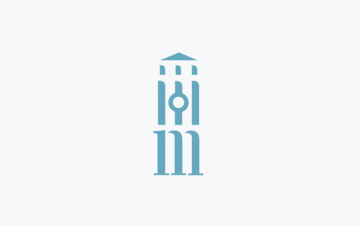The Press's Role in Building Digital Scholarship Communities

Two years ago, University of Michigan Press was part of a coalition of faculty members awarded a grant by the Humanities Collaboratory at the University of Michigan. Since September 2017, the "Book Unbound" project has explored ways of expanding the presentation of long-form digital scholarship at three "sites." Each "site" represents a publication project from three contrasting disciplines: archaeology, writing studies, and film studies.
For archaeology, the Gabii project has explored ways of integrating narrative, a 3D model, and a database to create a new form of archaeological report -- as shown in A Mid-Republican House from Gabii. For writing studies, a team from the Sweetland Center has published a data-rich analysis of how students at University of Michigan develop their writing skills over their educational careers -- resulting in the Developing Writers in Higher Education book and developingwritersbook.org project website. For film studies, a mixed team of undergraduate students and faculty members have attempted to recreate the social context of an unmade Orson Welles' film of Conrad's Heart of Darkness -- a project still undergoing peer review.
The three publications combine narrative and data, integrating both in a way that allows readers to enter the works from multiple vantage points and then follow trails that enrich their engagement with the scholarship. Technologically, the three titles showcase the power of University of Michigan's Fulcrum platform, developed with the support of the Andrew W. Mellon Foundation. However cool they are, however, the products of the three teams are ancillary to the purpose of the Humanities Collaboratory grant, which is focused on the process of collaboration. How can humanists, traditionally used to working as single authors, transform their practices to not only research collaboratively but also write and publish as a group? Is it possible to create a publication as a community? And how can the affordances of digital connect specialists with a larger public? These questions shaped the grant project.
For the last two years, the three teams have met regularly together to critique and challenge each other's work. Faculty and students have worked together intergenerationally to create knowledge together; the different disciplinary specialists have challenged each other to engage with audiences beyond their own fields; and University of Michigan Press staff have worked constantly with the teams to shape the projects and keep the momentum going.
Without structure and a purpose, the community involved in the "Book Unbound" project could have drifted apart. Crossing disciplinary divides is hard and it would have been easy for the three teams to retreat to the safe space marked by the boundaries of their own fields. What kept the group motivated, however, was resolute focus on "audience" that the Press's acquisitions editors brought to every meetings, and the workflow and deadlines that production and marketing departments enforced. In a digital environment where almost any form of invention is possible, the constraints of "preservation" and "discoverability" provided the authors with welcome anchors for a creative process that could easily have become untethered.
University presses are often forgotten in digital scholarship projects on campus. They are assumed to be stuck in the print area and their core expertise in "investment" and "organization" is dismissed as being irrelevant to the freewheeling digital environment. They are also often thought of as being removed from the research process and responsible simply for disseminating a fully-formed output. However, when they are invited in early in the process -- as University of Michigan Press has been to the "Book Unbound" project -- the return on investment for the enterprise as a whole is markedly improved: Communities gell around a common purpose, the value of communicating broadly not narrowly becomes clearly understood, and projects create outcomes that can measured and recognized.
Universities around the world are now investing in digital scholarship centers and digital humanities labs. These are spaces for exploration and creativity, but the need to share, preserve, and move on will inevitably emerge as projects develop and mature. As institutions attempt to build communities around these new forms of humanistic inquiry, they omit consideration of the university press just down the road at their peril.


